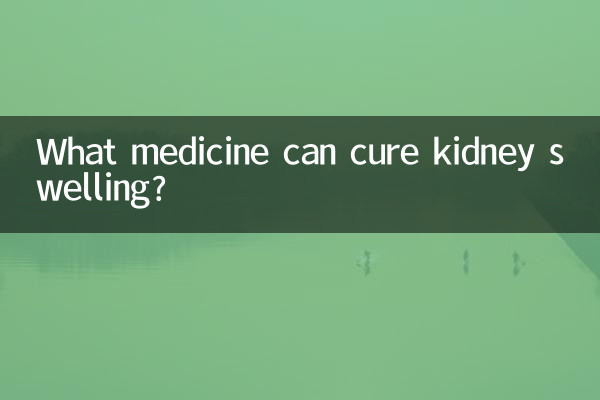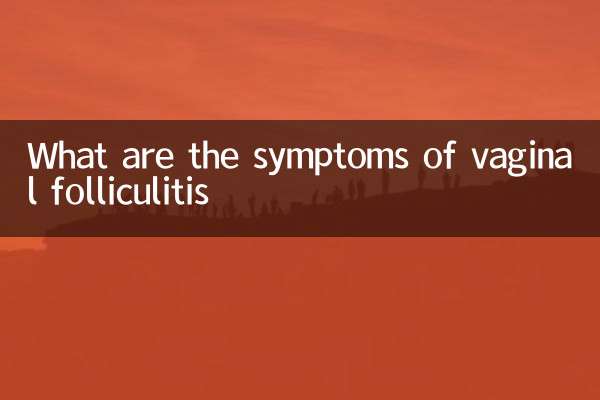What medicine can cure kidney cysts?
Renal cysts are a common kidney disease that usually manifests as fluid-filled cystic structures in the kidneys. Most renal cysts are benign and do not require special treatment, but some patients may require medication or surgical intervention. This article will combine popular topics and hot topics across the network for the past 10 days to explain in detail the treatment of renal cysts and precautions.
1. Common symptoms of renal cysts

Symptoms of renal cysts vary from person to person. Some patients may have no obvious symptoms, while some patients may have the following symptoms:
| symptom | describe |
|---|---|
| Low back pain | Enlargement of the cyst compresses surrounding tissues may cause dull or dull pain |
| hematuria | Can occur when a cyst rupture or infection |
| hypertension | Cysts compress kidney blood vessels may lead to increased blood pressure |
| Urinary tract infection | Repeated symptoms of frequent urination, urgency, and pain |
2. Drug treatment plan for renal cysts
At present, drug treatment for renal cysts is mainly symptomatic treatment, and there is no special drug that can completely eliminate cysts. The following are common drug treatment options:
| Drug Type | effect | Representative medicine |
|---|---|---|
| Pain relief medicine | Relieve pain caused by cysts | ibuprofen, acetaminophen |
| Antihypertensive drugs | Control cyst-related hypertension | ACE inhibitors, ARB drugs |
| antibiotic | Treatment of cyst infections | Cephalosporins, quinolones |
| Diuretics | Relieve symptoms of cyst compression | Furosemide, spironolactone |
3. Traditional Chinese medicine treatment for kidney cysts
In recent years, traditional Chinese medicine has attracted widespread attention in the adjuvant treatment of renal cysts. The following are some Chinese medicines with potential effects:
| Name of Chinese medicine | effect | Things to note |
|---|---|---|
| Astragalus | Enhance immunity and improve renal function | Use humid and heat constitution with caution |
| Poria cocos | Diuretic and wet, reducing cysts | Use with yin deficiency with caution |
| Danji | Promote blood circulation and remove blood stasis, improve microcirculation | Contraindicated for patients with bleeding tendencies |
| The car front | Diuretic and swelling | Use with kidney deficiency and sperm glucose |
4. Dietary advice for kidney cysts
A reasonable diet is particularly important for patients with renal cysts. Here are the recommendations recommended by nutrition experts in the past 10 days:
| Food Categories | recommend | Taboos |
|---|---|---|
| protein | High-quality protein: fish, egg white | Avoid excessive protein intake |
| Moisture | Keep drinking water in moderation | Avoid drinking water in a short period of time |
| Salt | Low-salt diet | Avoid pickled foods |
| caffeine | Restricted intake | Avoid strong tea and coffee |
5. New progress in the treatment of renal cysts
According to the latest medical research, the following new progress has been made in the treatment of renal cysts:
1. mTOR inhibitors: Studies have shown that the mTOR signaling pathway plays an important role in cyst formation, and drugs such as rapamycin may slow down cyst growth.
2. Vasopressin receptor antagonists: Drugs such as torvaptan may inhibit cyst development by regulating cell proliferation and fluid secretion.
3. Gene therapy: Gene therapy for polycystic kidney disease is in clinical trial stage and may provide new directions for future treatment.
6. When is surgical treatment required
Surgical treatment may be considered when:
- The cyst diameter exceeds 5cm and causes obvious symptoms
- Recurrent cyst infection
- Cysts cause serious damage to renal function
- Suspected cyst malignant changes
Common surgical methods include puncture and fluid extraction, laparoscopic cyst decapsulation, etc.
7. Daily precautions
1. Regular review: perform ultrasound examination every 6-12 months to monitor changes in cysts
2. Avoid strenuous exercise: prevent cyst rupture
3. Control blood pressure: Hypertension can accelerate renal impairment
4. Prevent infection: Pay attention to personal hygiene and avoid urinary tract infections
Conclusion:
The treatment of renal cysts requires individualized plans, and there is currently no specific drug that can be completely cured. Patients should take medication reasonably under the guidance of a doctor and cooperate with a healthy lifestyle. For asymptomatic small cysts, special treatment is usually required and regular follow-up is only possible. If obvious symptoms or complications occur, seek medical treatment in time to avoid delaying the condition.

check the details

check the details